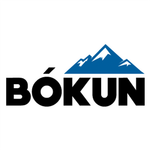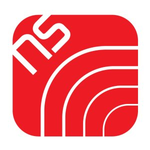Description

TourCMS

Tripmaker
Comprehensive Overview: TourCMS vs Tripmaker
TourCMS and Tripmaker are software solutions designed to assist travel and tour operators in managing their bookings, customer interactions, and other operational tasks. Here is a comprehensive overview of each in terms of their primary functions, target markets, market share, user base, and key differentiating factors:
a) Primary Functions and Target Markets
TourCMS:
-
Primary Functions:
- Booking Management: Streamlines the process of managing bookings, including the ability to handle complex tour itineraries and inventory.
- Channel Management: Connects tour operators with a wide range of distribution channels, including OTAs (Online Travel Agencies).
- Customer Relationship Management (CRM): Offers tools to manage customer relationships, including lead management and follow-up communication.
- Product Management: Provides a platform to create, manage, and update product offerings, including pricing and availability.
- Reporting and Analytics: Generates comprehensive reports to help businesses understand sales patterns, customer demographics, and other key metrics.
-
Target Markets:
- Tour Operators
- Travel Agencies
- Activity Providers
- Companies that run inclusive tours, adventure activities, or multi-day trips.
Tripmaker:
-
Primary Functions:
- Itinerary Planning: Offers tools for travelers and travel planners to create in-depth itineraries, with details on activities, accommodation, and transport.
- Collaboration Tools: Allows users to share and collaborate on travel plans with other travelers or stakeholders.
- Booking Integration: Facilitates bookings for flights, hotels, and other travel services directly from the itinerary.
- Personalization: Provides tailored travel recommendations based on user preferences and past behaviors.
-
Target Markets:
- Individual Travelers
- Travel Consultants
- Corporate Travel Planners
- Travel businesses focused on providing personalized travel experiences.
b) Market Share and User Base
Comparing TourCMS and Tripmaker in terms of market share and user base can be challenging without specific proprietary data, but generally:
-
TourCMS: Likely to have a more concentrated user base among professional tour operators and travel agencies. Its focus on B2B solutions in the travel industry may result in a smaller, but highly specialized user base compared to broader consumer-oriented platforms.
-
Tripmaker: May have a broader, more diverse user base due to its direct appeal to individual travelers as well as travel consultants. As a tool that emphasizes personalized itineraries, it could attract a larger consumer audience.
Overall, TourCMS might hold a significant share in the business sector of the travel industry, while Tripmaker may have more penetration in the consumer market, particularly among travelers seeking customized travel planning.
c) Key Differentiating Factors
-
TourCMS Differentiators:
- Industry-Focused: Provides specialized tools tailored for business operations in the tour and travel industry.
- B2B Centric: Primarily targets businesses looking to connect with distributors and manage operations efficiently.
- Integration Capabilities: Extensive integration with third-party distribution channels and platforms, positioning it as a robust solution for businesses needing connectivity.
-
Tripmaker Differentiators:
- User-Friendly Design: Often features a more consumer-friendly interface designed for easy itinerary planning by both casual travelers and professionals.
- Personalization Features: Emphasizes personalized travel experiences, offering dynamic recommendations based on user data.
- Collaboration Tools: Strong focus on enabling users to collaborate on travel plans, making it ideal for group travel and consultancy businesses.
Both products cater to distinct segments of the travel industry, with TourCMS focusing on operational efficiency for businesses and Tripmaker emphasizing personalized travel experiences for both individual users and travel professionals.
Contact Info

Year founded :
2003
+44 845 130 3917
Not Available
Switzerland
http://www.linkedin.com/company/tourcms

Year founded :
2011
+91-70254-47765
Not Available
India
Not Available
Feature Similarity Breakdown: TourCMS, Tripmaker
As of my last training data until October 2023, TourCMS and Tripmaker are platforms designed to aid tour operators and travel agents in managing their bookings and operations. Here’s a breakdown of their feature similarities and differences:
a) Core Features in Common
-
Booking Management: Both platforms offer comprehensive booking management systems that allow users to track and manage customer reservations efficiently.
-
Inventory Management: They help manage tour inventories, ensuring availability is up-to-date and accurately presented to customers.
-
Customer Relationship Management (CRM): Both providers offer CRM capabilities to help businesses maintain customer information and improve client relationships.
-
Payment Processing: Integration with various payment systems to handle online payments securely.
-
Channel Management: Connectivity with various sales channels to maximize tour distribution and visibility across multiple platforms.
-
Reporting and Analytics: Tools for generating reports and analytics to give insights into sales performance, customer behavior, and operational metrics.
b) User Interface Comparison
-
TourCMS:
- Offers a straightforward, functional interface that emphasizes usability for operators.
- The design tends to focus on detailed functionalities allowing users to deep dive into different aspects of their operations.
- TourCMS provides customizable dashboards which can be tailored to fit specific operational needs.
-
Tripmaker:
- Known for having a more modern, visually appealing interface.
- Emphasizes intuitive use, catering to both tech-savvy and less technically inclined users.
- Offers drag-and-drop functionalities and simple navigation to enhance user experience.
c) Unique Features
-
TourCMS:
- Known for its wide range of channel manager functionalities, allowing operators to manage different platforms from a single interface.
- Provides robust API integration capabilities, making it highly adaptable for businesses needing custom solutions or those with existing proprietary systems.
-
Tripmaker:
- Focuses on offering itinerary creation tools that are simple yet rich in capability, allowing agents to craft comprehensive travel plans easily.
- Offers unique tools for personalized customer engagement, such as automated follow-ups and marketing campaigns tailored to client preferences.
- Often includes features designed specifically for smaller to mid-sized tour operators, enabling scaling with affordability.
Each platform presents its strengths, with TourCMS being favorable for more complex operations that require in-depth channel management, while Tripmaker provides a more user-friendly experience ideal for those who value aesthetic design and straightforward usability.
Features

Customer Relationship Management (CRM)
Online Booking Management
Inventory Management
Reporting and Analytics
Marketing Tools

Local Insights
Trip Planning
Transportation Coordination
Accommodation Booking
Best Fit Use Cases: TourCMS, Tripmaker
TourCMS and Tripmaker are software solutions designed primarily for companies within the travel and tourism industry, but each has distinct features that make them suitable for different use cases. Here's a breakdown of the best fit use cases for each:
TourCMS
a) Best Fit for TourCMS
-
Tour Operators and Travel Agencies: TourCMS is particularly well-suited for medium to large tour operators and travel agencies that need a robust platform for managing complex bookings. Its comprehensive suite of features supports inventory management, customer relationship management, and sales reporting, making it ideal for businesses that offer multiple tour packages and need to integrate with various sales channels.
-
Multi-Day and Custom Tours: Businesses offering multi-day tours or custom itineraries will benefit from TourCMS's sophisticated product management features. It allows operators to manage logistics, bookings, and communications seamlessly.
-
Online Travel Agencies (OTAs): TourCMS is optimized for OTAs that require seamless integration with various distribution channels, including online travel marketplaces. Its robust API and channel management tools allow businesses to expand their reach and manage pricing and availability dynamically.
d) Industry Verticals and Company Sizes for TourCMS
- Verticals: Primarily focused on travel and tourism, including adventure travel, cultural tours, and large group travel.
- Company Sizes: Best suited for medium to large enterprises with complex booking and distribution needs, and potentially some smaller companies that plan to scale.
Tripmaker
b) Preferred Scenarios for Tripmaker
-
Small to Medium-Sized Agencies and Travel Planners: Tripmaker is more adaptable for smaller businesses or individual travel planners that need an intuitive platform for itinerary creation and client management. It prioritizes ease of use and flexibility in designing travel experiences.
-
Custom Itinerary Design: Ideal for businesses that focus on providing personalized travel experiences, as it offers tools for creating detailed travel itineraries with ease.
-
Educational Tours and Specialty Travel: Companies that specialize in niche markets, such as educational tours or specialized travel experiences (e.g., culinary tours, wellness retreats), can utilize Tripmaker’s simple design capabilities to tailor offerings individually.
d) Industry Verticals and Company Sizes for Tripmaker
- Verticals: Best suited for niche travel experiences, educational tours, or personalized trip planning services.
- Company Sizes: Small to medium-sized enterprises, independent travel consultants, and niche market operators.
Summary Highlight
- TourCMS is optimal for larger or growing tour operators needing comprehensive management, especially those integrated with multiple sales channels. It excels in complex booking environments.
- Tripmaker is favored for smaller entities or specialized travel planners focusing on unique, custom travel experiences, needing a user-friendly system to manage and present travel itineraries.
Both products serve to enhance operational efficiency and customer engagement but cater to different scales and focus areas within the travel industry.
Pricing

Pricing Not Available

Pricing Not Available
Metrics History
Metrics History
Comparing undefined across companies
Conclusion & Final Verdict: TourCMS vs Tripmaker
To provide a conclusion and final verdict on TourCMS and Tripmaker, let's delve into the evaluation based on their features, usability, cost-effectiveness, and suitability for users' specific needs.
a) Considering all factors, which product offers the best overall value?
Overall Best Value: TourCMS
TourCMS tends to offer a more comprehensive and versatile platform for tour operators and travel businesses, especially those aiming to manage complex inventory, bookings, and channel distribution. Its integration capabilities, robust customer support, and scalability make it a valuable investment for medium to large-sized travel companies. However, the best choice depends heavily on the specific requirements of the business.
b) Pros and Cons of Choosing Each Product
TourCMS:
-
Pros:
- Comprehensive Features: Offers a wide range of tools for booking management, channel management, and reporting.
- Scalable: Suitable for businesses looking to grow; able to handle increased data and usage.
- Integration Capabilities: Integrates with numerous payment gateways and third-party APIs, making it versatile and adaptable to various business needs.
- Good Customer Support: Provides reliable support, knowledge bases, and training resources.
-
Cons:
- Cost: May be more expensive, especially for startups or small businesses.
- Complexity: Can have a steeper learning curve due to its wide range of features.
Tripmaker:
-
Pros:
- User-Friendly: Known for its intuitive interface, making it accessible for non-tech-savvy users.
- Affordability: Often more cost-effective, appealing to small businesses or startups with budget constraints.
- Quick Setup: Easier and faster to deploy, which can be advantageous for businesses looking to get started quickly.
-
Cons:
- Limited Features: May lack some advanced features and integrations needed by larger businesses.
- Scalability Concerns: Might not be as scalable as TourCMS, limiting its use as the business expands.
- Less Extensive Support: Customer service and support options might not be as robust as those offered by TourCMS.
c) Specific Recommendations for Users Deciding Between TourCMS vs Tripmaker
-
Evaluate Business Size and Needs:
- If you are a small to medium-sized business with simple booking and travel management needs, Tripmaker could offer a cost-effective and user-friendly solution.
- For larger businesses or those with complex requirements, such as managing multiple sales channels and needing detailed reporting, TourCMS may provide better long-term value.
-
Budget Considerations:
- Assess your budget for purchasing and maintaining the software. Tripmaker is an attractive option if budget constraints are a primary concern.
-
Scalability Requirements:
- Consider your growth plans. If you anticipate significant growth and require software that can keep up with increasing demands, TourCMS may be the preferable option.
-
Feature Prioritization:
- Make a list of must-have features. Choose the platform that better aligns with these prioritized needs.
Ultimately, the choice between TourCMS and Tripmaker should be guided by specific business goals, operational size, and future growth plans. Engaging in a trial period, if available, and consulting with customer service or a technology advisor might also aid in making an informed decision.
Add to compare
Add similar companies



